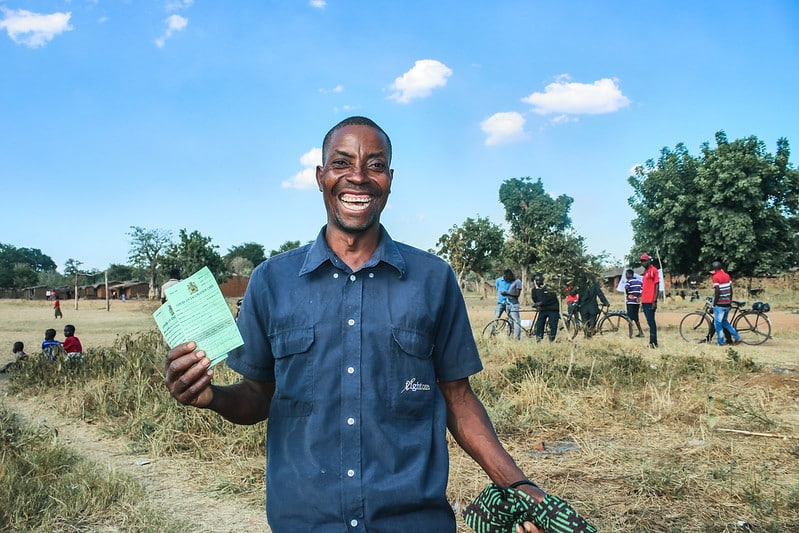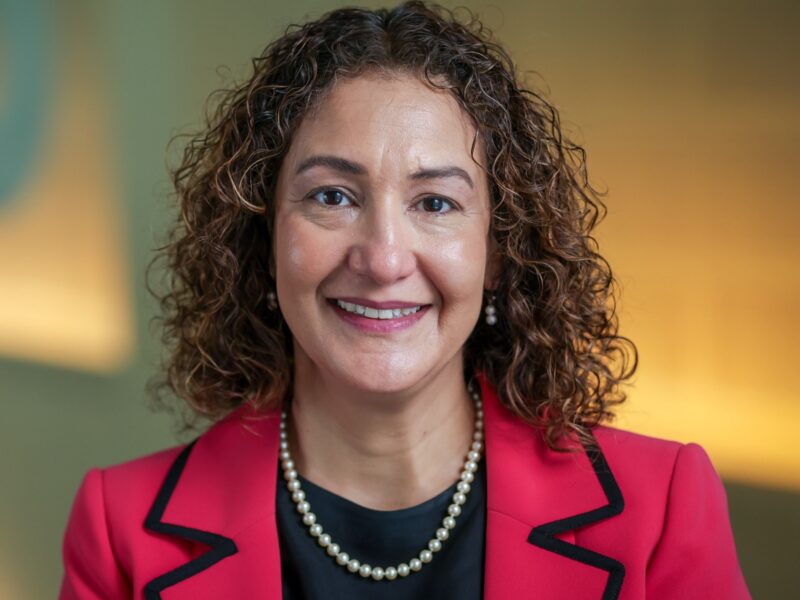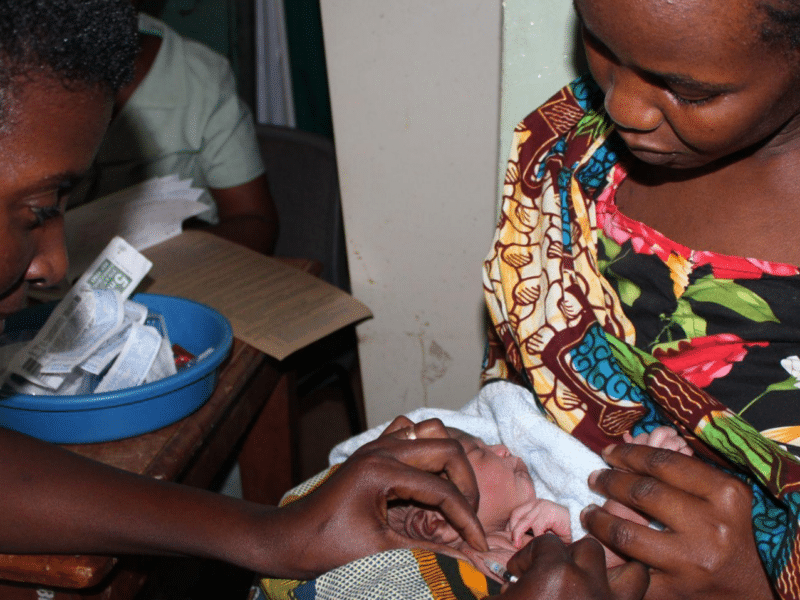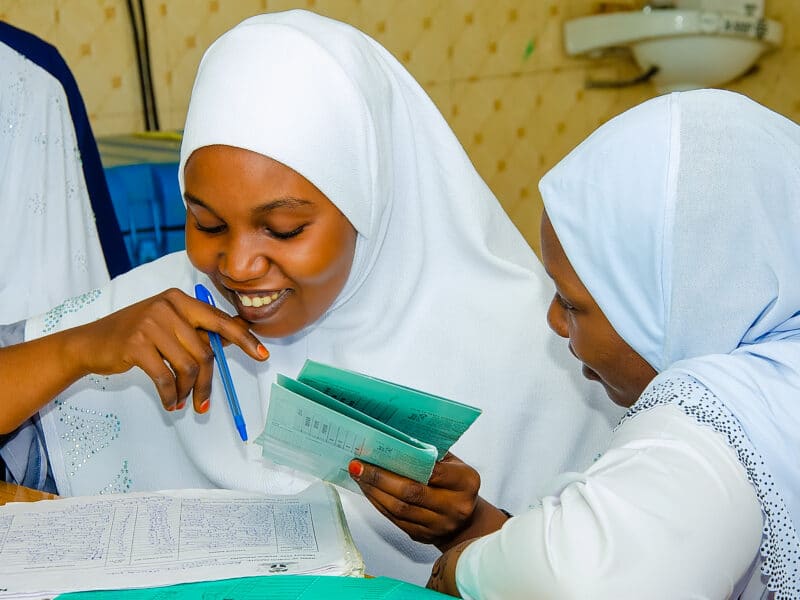New research from the Johns Hopkins Center for Communication Programs suggests that treating the COVID-19 vaccine differently than other routine vaccines may have contributed to doubts about the new vaccine and low uptake rates in Malawi.
The researchers, publishing in the Global Health: Science and Practice journal in December, conducted individual interviews with health workers and community gatekeepers such as chiefs and village heads, and focus groups with men and women who were vaccinated against COVID and those who were not.
The research, gathered for the CCP-led Breakthrough ACTION COVID-19 vaccine project in Malawi, also found that while some people may have been concerned about the dangers of COVID, conflicting recommendations about vaccines and doubts about its benefits could be at the root of why Malawi’s vaccination rates were low, beyond the vaccine inequity issues that faced many countries early on. People in Malawi may have ultimately feared the vaccine more than the disease, says CCP’s Natalie Tibbels, who led the analysis.
“Participants suggested that with other health behaviors in Malawi, whether there’s a formal mandate or not, communities just agree – with guidance from health providers and local leaders – to take a precaution because it protects everyone. It’s the social norm,” Tibbels says. “But with the COVID vaccine, there was this emphasis on personal choice. People were told it’s kind of up to you to decide.
“Rather than making people feel empowered, it actually made them feel suspicious of the vaccine. The feeling was: If you really believed I should get it, you would just tell me to, which is what you’ve done for other kinds of health behaviors.” People were also confused by discussion of different vaccine brands, something that doesn’t get talked about when it comes to routine vaccination.
One focus group participant, a vaccinated man from the district of Thyolo, said: “Currently health care workers are saying it is supposed to be voluntary, administered not by force. So, people don’t take it seriously and the words of saying ‘It’s not by force’ has discouraged a lot of people to vaccinate.”
Not only was COVID vaccination presented as a choice, each person who was vaccinated received a special card, another difference from the way routine vaccines are typically handled. Some were concerned that having a separate card was the mark of the beast. It led to conspiracy theories.
At the same time, some vaccinated participants in the study said that seeing a leader get vaccinated publicly or a health worker who showed their card influenced local buy-in.
“In the research, we saw that some objections to the vaccines had to do with religion and there was confusion about why there were different brands and why the number of recommended number of doses needed kept changing,” says Breakthrough ACTION’s Rominie Kaseghe, who managed the study. “That’s why as a project we worked with religious leaders to address those concerns, and we also worked with the government on a communication campaign to help people understand better about the vaccines.”
Since the data were collected in Aug. 2022, there have been efforts in Malawi and elsewhere to integrate COVID-19 vaccination into primary medical care and the cholera response efforts.
“The Ministry of Health rightly led a variety of approaches that participants in the study felt worked very well, particularly mobile vans and door-to-door promotion of COVID-19 vaccination, which were necessary to bring the vaccines to people quickly,” she says. “But as time goes on, people need to see the COVID-19 vaccines as part of the normal way of protecting health and not a separate agenda.”
Meanwhile, while data collection was taking place in August 2022, a cholera outbreak hit Malawi. When that news broke, people scrambled to get vaccinated against cholera, a disease they had seen before and felt was severe.
“The calculation involved in COVID was: Would I rather gamble on the disease or the vaccine?” Tibbels says. “This was different from what people described in thinking about the cholera vaccine, or even how they described tetanus shots during pregnancy or other routine immunizations.”
While just 4 percent of Malawians were fully vaccinated against COVID in early 2022 and rose to 15 percent by August, ultimately, by April 2023, more targeted vaccination campaigns helped increase vaccination rates to 28 percent. Recent efforts in the country have promoted cholera prevention, COVID-19 vaccination, and human papillomavirus (HPV) vaccination.
Tibbels says it’s important to learn the lessons from the COVID-19 vaccine rollout, key among them is building buy in among trusted influencers, health workers and community leaders who can share their positive experiences with others to help create a norm around vaccination, even if it is for a new disease.
“Emergency preparedness should consider that all steps in an emergency response need to be adapted to each context,” says CCP’s Maria Elena Figueroa, the study’s principal investigator. “In countries where vaccines are generally acceptable it is worth promoting them as expected, within emergency response limitations, to ensure uptake.”
Adds Tibbels: “We want there to be this kind of normative expectation that applies to all the other vaccines that we have confidence, and of course people can opt out, but it’s not because they’re not sure what the promoters think about it.”
“Perceptions of the COVID-19 Vaccine and Other Adult Vaccinations in Malawi: A Qualitative Assessment” was written by Natalie Tibbels, Rominie Kaseghe, Alvin Blessings Chisambi, Vitima Ndovi, Alfred Mang’ando and Maria Elena Figueroa.
The research was funded by the U.S. Agency for International Development (USAID) under the Breakthrough ACTION project (Cooperative Agreement # AID-OAA-A-17-00017).





